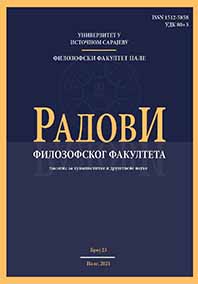RACIONALNO ODLUČIVANjE U ADOLESCENCIJI
RATIONAL DECISION MAKING IN ADOLESCENCE
Author(s): Đorđe M. PetronićSubject(s): Psychology, Cognitive Psychology, Behaviorism
Published by: Универзитет у Источном Сарајеву, Филозофски факултет Пале
Keywords: rationality; decision making; reasoning; thinking; adolescence;
Summary/Abstract: Competences for reasoning and decision-making in adolescence can have long-term consequences for the health and well-being of adolescents, so the main goal of this paper is to describe the psychological processes that influence adolescents' decisions. The first research in this area was mainly focused only on age differences in cognitive decision processing. However, later research is complemented by findings from a cognitive, developmental, social, and emotional perspective and a neuroscience perspective. The integration of different scientific perspectives has contributed to a more complete explanation of why adolescents sometimes misjudge risk and engage in risky behaviors, even though they have mature cognitive potentials to assess the positive and negative outcomes of their decisions. The results in this paper showed that due to poor coordination of the cognitive and emotional system, adolescents sometimes show poor judgment and decision-making despite a matureness in ability to understand and think about the advantages and disadvantages of their choices. In other words, the adolescent will find it difficult to overcome type 1 processes in a risk situation, and failure to overcome them leads to an automatic, reactive, reckless response. Such a response is usually characterized by a focus on short-term and immediate satisfaction rather than long-term benefit. In the period of late adolescence and early adulthood, there is an improvement in the coordination of cognitive and affective processes. As adolescents mature, they become increasingly able to regulate the social and emotional influences that previously guided their reasoning and decision-making about engaging in risky behaviors. With the present results in mind, it is concluded that in order to encourage the health and well-being of adolescents, it would be useful to work on challenging the intuitive perception of the benefits of risk-taking and strengthening the adolescent's intuitive understanding, logical reasoning and rational decision-making. In other words, in order to promote health and well-being, adolescents should be taught about the ways in which emotions can affect their thinking and thus their behavior.
Journal: Радови Филозофског факултета (часопис за хуманистичке и друштвене науке)
- Issue Year: 2021
- Issue No: 23
- Page Range: 159-173
- Page Count: 15
- Language: Serbian

